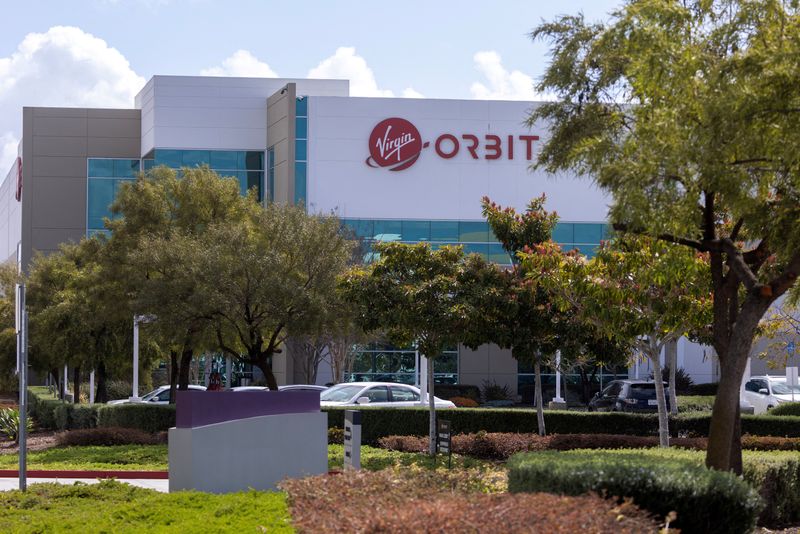By Joey Roulette
WASHINGTON (Reuters) - U.S. space startups have slashed workforces and restructured operations to survive amid an investment drought that has grounded once-lofty aspirations.
While more established players like Elon Musk's SpaceX and Jeff Bezos' Blue Origin spend billions on new, bigger rockets, rocket startup Astra Space, satellite imagery firm Planet Labs and privately held engine maker Ursa Major recently laid off workers to cut costs.
Those struggles follow the April bankruptcy filing by satellite launch firm Virgin Orbit, which was owned by billionaire Richard Branson. Among the factors cited by the company were volatile capital markets and Branson's reluctance to invest further.
"The focus for investors in this space is very different than what it was a couple years ago. It's less about your potential," Ursa Major CEO Joe Laurienti told Reuters. "It's more about how can you build a healthy pipeline ... and execute and deliver upon the efforts that you promised."
While a steep drop in space investments spurred by a grim economic outlook in the past year appeared to stabilize in the most recent quarter, startups, many of which went public through blank-check companies to raise cash, are reeling from the downturn's impact.
Quilty Analytics analyst Caleb Henry called it a tough capital market and said startups are working with what they have rather than banking on an influx of new funds.
"We're seeing a bit of a decrease in investor risk appetite, and that is made worse in some cases by poor company performance, and then more broadly, things like high interest rates and general market uncertainty," he added.
Astra disclosed last week it laid off a quarter of its workforce and diverted focus from its rocket launch program, once the core of its business. It is now focusing on its satellite propulsion unit, a more immediate source of revenue that it split off as a separate entity earlier this year.
"The spacecraft engine business is a much different business than launch," Astra CEO Chris Kemp told Reuters. "Having it all mixed up with launch was making it harder for us to raise capital"
The company, which is delaying tests of its rocket to 2024 to focus on the satellite engine unit, reported on Monday it had $26 million in cash and securities on hand. That was down from $201 million the prior year.
STEEP CHALLENGES
With complex technologies and explosion-riddled tests that often spook investors, venture-backed and publicly traded rocket businesses have faced some of the steepest financial challenges. The industry also includes satellite imagery and analytics firms, seen as safer bets by investors due to more predictable demand.
But even those satellite firms have struggled.
Planet Labs, which went public in 2021, shed 10% of its roughly 1,000 employees earlier this month, citing the tough economy and the company's overly fast expansion.
"Our business has scaled rapidly and continues to grow apace, but the expansion of projects has also increased cost and complexity, which slowed us down in some regards," CEO Will Marshall told employees in an Aug. 1 note posted on the company's website.
Quilty's Henry said Planet Labs hired too aggressively. "That's not an uncommon mistake for startups to make, especially once they become flush with cash."
The financial headwinds faced by rocket startups have triggered pain elsewhere as well.

Denver-based Ursa Major, whose engines are designed for rockets and hypersonic crafts, laid off 27% of its workforce this summer. It shifted much of its focus to government defense programs as its commercial customers face tight capital markets, CEO Laurienti said.
"The hope is that shift really generated some confidence," he added, "and started to show that we're acknowledging this isn't times of zero percent interest rates and venture capital flowing like crazy."